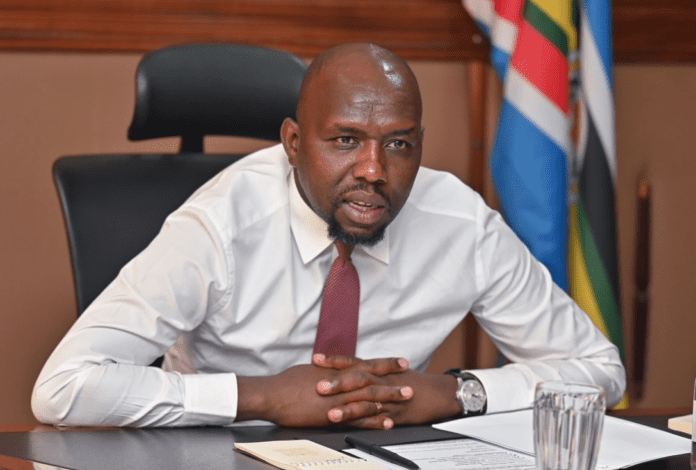Interior Cabinet Secretary Kipchumba Murkomen has revealed that ongoing displacement in Marsabit County has left 528 families affected, with 135 homes either vandalized or burned down and 267 individuals in need of resettlement land.
Addressing the Senate, Murkomen was responding to concerns raised by Marsabit Senator Mohamed Chute regarding the plight of Internally Displaced Persons (IDPs) in the region.
He attributed the displacement to ethnic and socio-political violence that occurred between 2017 and 2022, leading to the destruction of homes and forcing many families to flee.
“According to available records, 528 households had their homes vandalized, while 135 houses were set ablaze,” Murkomen said.
The most affected sub-counties include Jirime, Milima Tatu, Mata Arba, Qilta, Dirib/Dokato, Jaldesa, and Badasa.
Murkomen assured that the government has been distributing relief food to the affected households to support them during displacement.
Regarding plans for resettlement, he said many displaced individuals have started returning to their original settlements, including Manyatta Daaba, Sales Wako, Konso Banchale, Isackon Umuro, and Gabra Scheme.
To enhance security, he noted that a police post had been constructed at Manyatta Daaba through the Saku Constituency Development Fund (CDF) and is awaiting deployment of security officers.
Additionally, the government has taken the following security measures:
- Deployment of National Police Reservists (NPR) in high-risk areas.
- Continuous peace dialogues across the county.
- Operational peace committees to mediate conflicts.
- Strengthened intelligence gathering to preempt violence.
- Regular public barazas to reinforce law and order.
The issue of compensation remains unresolved, as the government has yet to allocate funds for direct financial assistance to displaced persons. However, Murkomen assured that discussions are ongoing within the County Resettlement Committee to facilitate a voluntary return for the affected families.
While direct monetary compensation is not currently available, he affirmed that the government remains committed to providing essential supplies, including food and non-food items, to returning IDPs.
“The government is committed to ensuring that, upon their return, displaced families will continue receiving essential provisions to help them rebuild their lives,” he stated.
The government’s intervention comes as local leaders and humanitarian organizations call for more comprehensive measures to prevent further displacement and provide sustainable solutions for affected communities.





![SHA Suspends Dozens of Health Facilities Over Alleged Fraud [LIST]](https://citymirror.ke/wp-content/uploads/2024/12/image-14-218x150.png)

